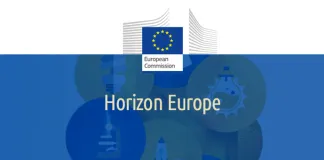TWINEU
Relevant project information
Dates
Project website
Role of CIRCE
Grant agreement number
Funded by

Description and objectives
TWINEU is developing Digital Twins (DT) to facilitate the energy transition in Europe.
The approach is to increase the presence of renewable energies, strengthen infrastructure and improve operational coordination.
The TwinEU consortium seeks to create a federated ecosystem of digital twins (DT) solutions, ensuring interoperability and data exchange.
This is achieved through standard interfaces and open APIs. Digital twins are envisioned to act as the core of data exchange in Europe, supported by the energy data space.
The project involves multiple stakeholders, covering more than 15 European countries, including energy operators, demonstrations at different levels and collaboration with industry, research institutions and associations to develop innovative solutions.
The main objective is to create an advanced digital twin model, using artificial intelligence tools and leveraging high-performance computing infrastructure, to observe, test and activate a digital replica of the European energy infrastructure.
Value proposition
Development of algorithms for real-time operation optimization:
- Implementation of advanced algorithms that use the digital twin of Red Eléctrica de España (REE) to optimize the real-time operation of the power grid. This involves the ability to digitally model and simulate the electricity infrastructure to make informed and efficient decisions in real time.
Development of machine learning (ML) algorithms:
- Design and application of machine learning algorithms aimed at scenario generation. These algorithms use historical and real-time data to foresee future situations and apply technical network constraints. The application of technical constraints ensures that operating conditions are optimal and safe.
Calculation of curtailment:
- Development of specific methodologies and algorithms to calculate curtailment.
- Curtailment refers to the intentional reduction of energy generation, and its calculation involves evaluating operating conditions and grid constraints to determine the amount of energy to be reduced. This process helps to optimize grid operation and ensure an efficient and secure energy supply.
Project partners
UBE;ENG;ED;TUD,ENEL; E-D; UPRC; ETRA; ELES;BME; APG;CRESYM; E.DSO; ENTSO-E; VITO; EDG West; ENTRA ENERGY; ESO EAD; SCBG, SETECHCO, CINTECH, ARCHI ILEKTRIMOU; EAC; GSXR; TPAD; CYPRUS UNIV; ARTELYS; RTE; AMPRION; E.ON; ENVELIO; RWTH; DORTMUND UNIV; WESTNETZ; SMART SUST SOCIAL INNOVATIONS; HEDNO; HENEX; IPTO; TGT, UOA; F4STER; HUPX; MAVIR; ARETI; ENEL X; ENSIEL; EXW; RSE; TRI; ALLIANDER; JEDLIX; STEDIN; TENNET; INESC-TEC; R&D NESTER; REDE ELECTRICA NACIONAL PORTUGAL; TSO ROMANIA; BUCAREST UNIV; EG; EIMV; HSE; LIUBLIANA UNIV; ESTABANELL; CIRCE; COMILLAS UNIV; CUERVA; RED ELECTRICA ESPAÑA; TURNING TABLES; OMIE; ELIA; 50HERTZ; I-DE; EDRD, FRAUNHOFER


